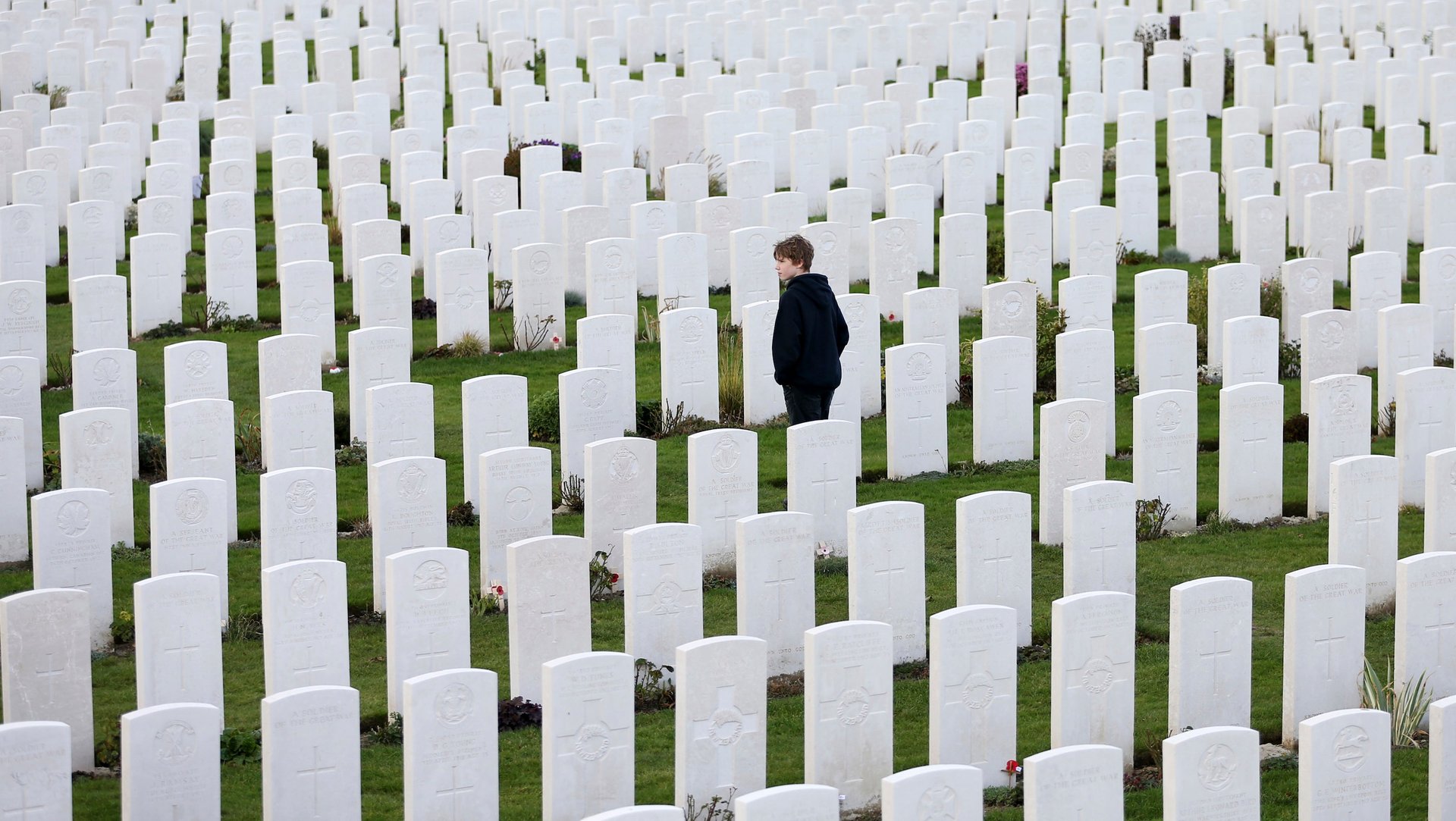Pop music has become obsessed with death
When the Grammy Awards come on next weekend (Jan. 28), nominations for one of the most distinguished honors—song of the year—will spotlight a track not about love or lust or fame, but dying. Dying by one’s own hand, to be specific.


When the Grammy Awards come on next weekend (Jan. 28), nominations for one of the most distinguished honors—song of the year—will spotlight a track not about love or lust or fame, but dying. Dying by one’s own hand, to be specific.
“1-800-273-8255,” from the rapper Logic and singers Alessia Cara and Khalid, sat atop music charts for weeks after its debut, and is competing against Luis Fonsi’s “Despacito” and Jay-Z’s “4:44” for the coveted accolade.
On the song’s refrain, Logic sings:
I don’t wanna be aliveI don’t wanna be alive
I just wanna die today
I just wanna die—
One gets the idea.
The title—”1-800-273-8255″—refers to the phone number for the US National Suicide Prevention Lifeline, not the most glamorous of topics. But the song isn’t an outlier; it’s one of a slew of macabre, chart-topping pop songs in recent years.
Recall Kesha’s 2012 “Die Young,” an irreverent electro-pop tune chirping about living fast and hard; Kanye West’s 2007 “Coldest Winter,” an auto-tuned elegy to life and love; Death Cab for Cutie’s 2006 crooning indie acoustic hit “I Will Follow You Into the Dark.” Such tracks are only some of the most famous, mainstream examples of pop music’s veer into the grisly and dark.
Don’t fear the reaper
Quartz tested the “deathliness” of pop music by looking at the raw facts. For our analysis, we examined lyrical content of 15,000 songs charting on the Billboard 100, going back to 1958, the year the Hot 100 was first established. Data was provided by the data scientist Colin Morris, who used this same dataset for an article on The Pudding looking into whether pop music lyrics have become more repetitive.
The data contain over half of chart-topping songs from the period we analyzed. We don’t believe there is any reason the missing songs would be any different in content, so this should not impact our findings.
We identified songs that had “deathly” lyrics by checking if they had one of the following words: die, died, dead, death, kill, killed, killing, murder, murdered, slaughter, and slaughtered.
The number of words in the average pop song has increased over time, making it more likely that any word will show up in any pop song, not just macabre ones. We accounted for this by inflating the proportion by how many fewer words were used in an era. So if the average song had half as many unique words in 1970 as 2016, we would multiply the proportion by two.
We were also concerned that any modern words might show up more in modern pop songs. But we checked whether randomly generated sets of modern words showed similar patterns, and we found no increase in their usage.
Soul meets body
The overall rise since the early 1980s appears to be associated with the rise of rap, but we think there is more to it than that.
“If hip-hop has historically focussed on invincibility, this generation is fixated on mortality,” Carrie Battan observed last week in a New Yorker piece about a new, peculiarly emotive wave of rap music, building off of decades of prior sounds and cresting in a vigorous interest in confronting the end of life head-on. “Nihilism, taken to an extreme that feels almost competitive, has become its own form of braggadocio.”
Trends in music tend to feed back into themselves, so pop music’s newfound interest in mortality is surely not unconnected to rap’s. The link is especially likely when considering that, thanks to the digitization of music via streaming services, many genres have melded together, making “crossover” songs more ubiquitous. Logic’s, for instance, is a blend of hip-hop, soft rock, and pop.
But pop music’s death-oriented attitude can also trace itself back through cultural history at large. Death in music is by no means new—just look at the teenage tragedy song, a popular trope in music in the 1950s and 1960s. Recall the angsty liner notes of Nirvana, Metallica, The Smiths, and a litany of other artists who made singing about death something edgy and thrilling.
Then there’s actual “death pop,” a goth-centric style in Sweden that combines post-punk and indie-pop. All of this has been bubbling to the surface in a particular moment—as society begins to break down the taboos around pain and death and suicide and mental health, as popular entertainment talks candidly about death in the form of television shows like Netflix’s Thirteen Reasons Why, as dying becomes something accepted, studied, and even considered cool.
Pop songs, following in those trends, are now unafraid to tackle the grim and gruesome—and the appetite for it is strong. Notably, “1-800-273-8255” served a purpose beyond the artistic: Calls to the National Suicide Prevention Lifeline rose by 27% in the three weeks following the single’s release, the organization said. Visits to its website increased from 300,000 to 400,000 over the following months.
Love, in music, has become a bit passé. Fame is boring. Is there anything new to talk about? Yes—the end of everything. Or to put it a different way: The last remaining unknown.